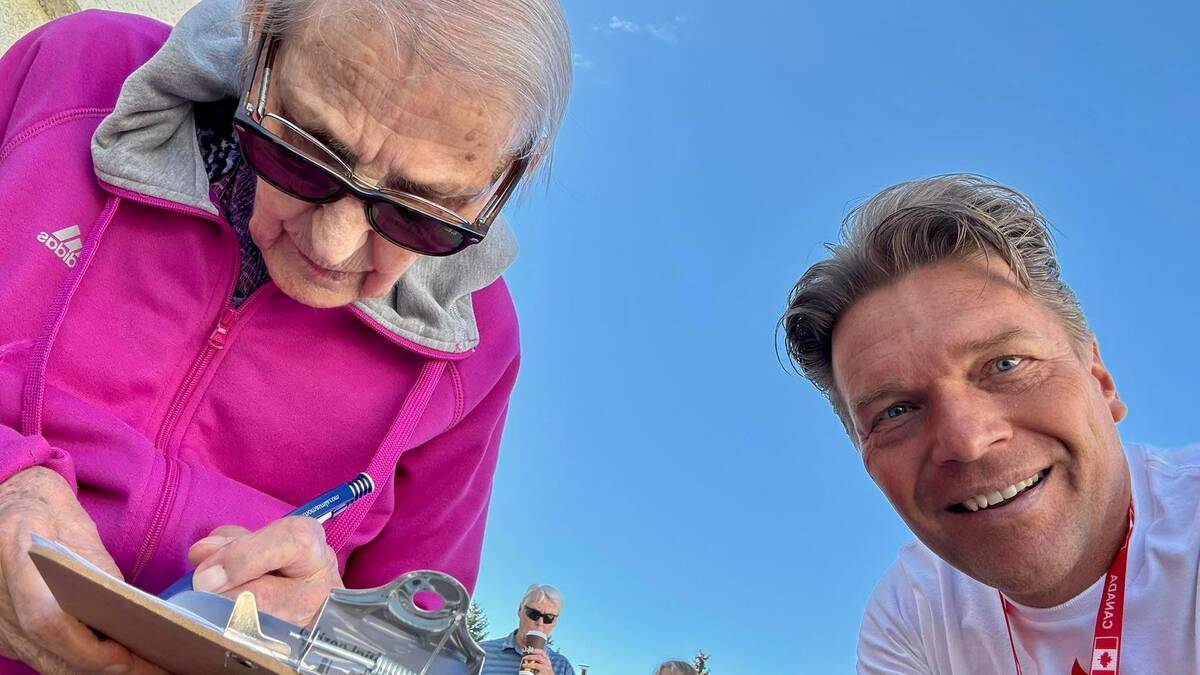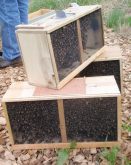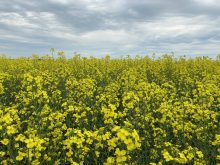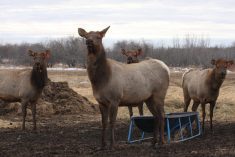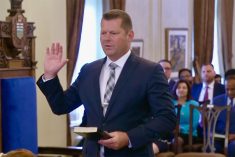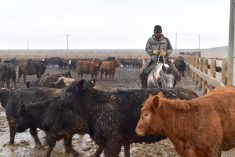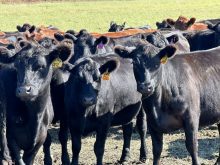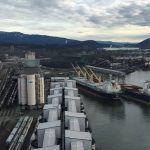As former Progressive Conservative deputy premier Thomas Lukaszuk embarks on his Alberta Forever Canada citizen petition campaign, something has gnawed at the back of his mind — where is the voice of agriculture in all of this?
Lukaszuk is several weeks into a campaign to counteract the Alberta Next Panel overtures and an Alberta separation referendum question that is currently tied up in the courts over its constitutionality.
“This government has been almost singularly focusing only on oil and gas, where agriculture is rarely ever mentioned. I’ve been in this government in Alberta for almost 15 years, and held value at various portfolios, and agriculture and oil were always equals to us as the two leading industries, followed shortly thereafter by tourism,” said Lukaszuk.
Read Also
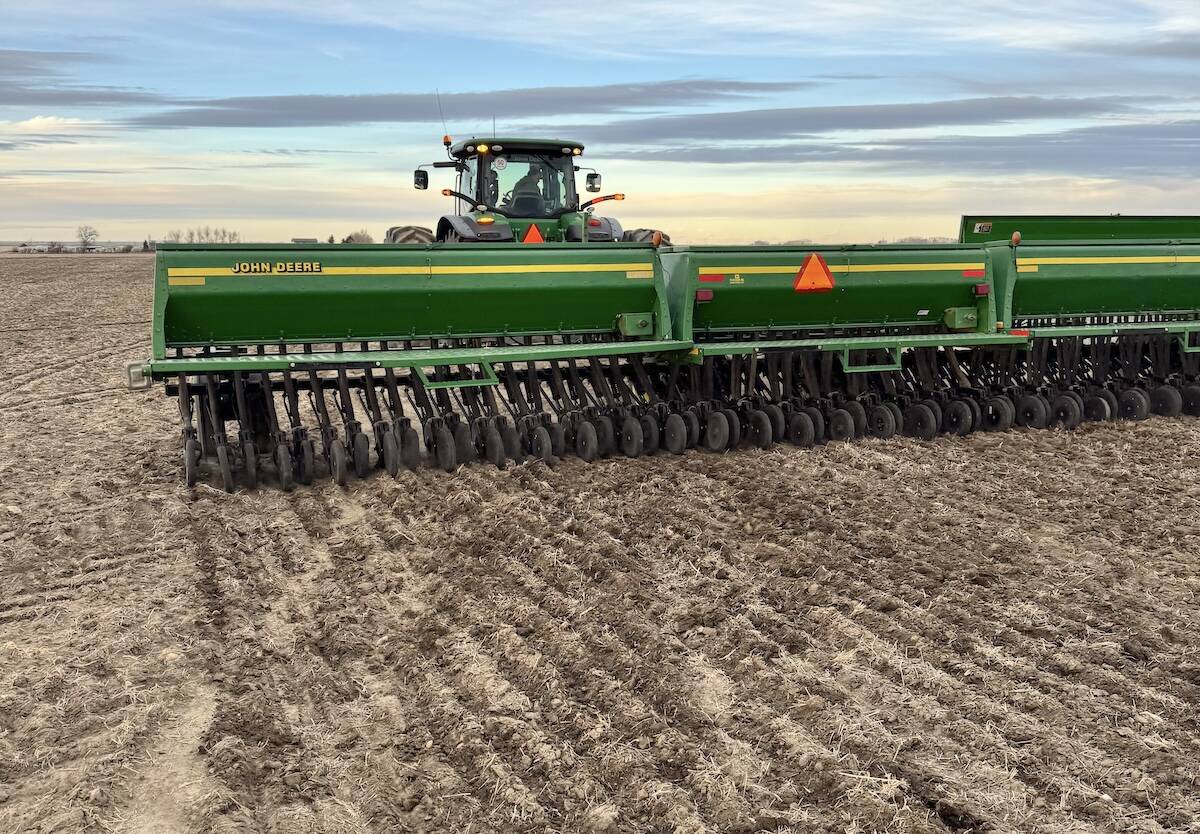
From winter soil to bountiful crops: Alberta’s ultra-early seeding experiment
Southern Alberta farmers are putting research into practice, pushing ahead traditional seeding times by months for spring wheat and durum.
“Our agricultural economy in this province is based on export. Very little food do we actually upgrade and refine in this province. Things either go to the States or they go to other countries. We have phenomenal markets and a great reputation, but a lot of this is tied to the fact that it is Canadian, and all those trade agreements are signed by Canada, and all the inspections and everything are done by Canada. Now you form this new entity, you’re starting from scratch. I am really miffed when everybody only talks about pipelines, and that is important. But what about all the other products, the agricultural products?”
Lukaszuk said there has been little discussion about what Alberta separation would mean to the agricultural sector.
How would Alberta farmers export their goods to foreign countries without access to ports?
Would a sovereign but landlocked Alberta’s international bargaining capacity be compromised if it no longer had the clout that Canada brings? What of mobility of agricultural labour and other trades with internationally recognized certification?
“This is a country of 40 million people, and we are a G7 country. They take us seriously and we to a certain extent get to dictate some of the terms,” Lukaszuk said.
“Now, Alberta, a country of four million, never mind G7, it will be lucky to be G40. How are we going to renegotiate all those terms for export of agricultural products and imports of some input products that we need? Who’s going to establish the 150 some embassies that Canada has across the world that have commercial offices, that promote Canadian products across the world?…
“Our beef, pork and poultry producers, all of their products are inspected by federal agencies which are accredited, accredited internationally and recognized. If a product is inspected by a federal government, all other countries honour that inspection. What if they don’t honour Alberta inspection? Are these things being thought about?”
Lukaszuk, an immigrant who fled communism in Poland when he was 12 years old, served in Alberta politics from 2000-15, serving under premiers Ralph Klein, Ed Stelmach, Alison Redford, Dave Hancock and Jim Prentice.
He acknowledges there is a certain irony in a city slicker former politician like himself fighting for agriculture, but his steering committee includes Stelmach, who has strong rural roots as a farmer.
Lukaszuk said Alberta Forever Canada’s steering committee is non-partisan politically, comprising right-of-centre influences such as Ian McClelland, who helped build the foundations of the Reform Party, all the way through former provincial Progressive Conservatives and former Stephen Harper cabinet minister Brent Rathgeber, who is helping manage the campaign. It also includes Anne McLellan, a former Liberal deputy prime minister and former NDP influences Brian Mason and Gil McGowan.
“This is not a partisan thing. This is common sense. They may have different political views, but they as sure as hell don’t want to separate from Canada. They understand how devastating this would be to our economy,” said Lukaszuk.
He said history shows how even whispers of separation have had crippling affects on an economy.
Bank of Montreal moved its headquarters to Toronto during the uncertainty over Quebec separation.
The United Kingdom’s withdrawal from the European Union in 2020 has resulted in non-tariff barriers, with some studies showing reduced U.K. goods exports and smaller firms struggling with the increased bureaucracy.
Investment in the Spanish regions of Catalonia and Basque often stalls because of talk of separation.
“Business wants a couple of things. They want a good return on investment and they want stability. But they will even take a little smaller return on investment if the stability is guaranteed. Nobody wants to invest into an unstable market,” said Lukaszuk.
“When a jurisdiction starts talking about separatism, the first victim is the economy.”
The race is on for Lukaszuk’s Alberta Forever Canada petition campaign as it attempts to get the question, “Do you agree that Alberta should remain in Canada?” put on a provincial ballot.
Ten per cent of all the eligible voters (293,976) signatures must be obtained by Oct. 28 for the petition to be successful.
Lukaszuk said the Alberta premier has hamstrung the process with convenient timing of political decisions.
“Danielle Smith is playing this game where she says, ‘I’m not a separatist,’ but she’s bending over backwards to tilt the field to make it easier for her separatists. The day after I filed my petition, she proclaimed Bill 54, which makes it easier for separatists to have their petition. If they were allowed to have one, they basically would have to collect half the signatures in almost twice the time, and they would have no barriers on fundraising, where I have major rules on fundraising.”
Early petitions returns have been promising, including getting as many as 8,000 signatures in long lineups in one day, with nearly 3,000 signature collectors certified by Elections Alberta.
The number of canvassers is expected to double within the next month as they make their way across urban and rural Alberta.
Lukaszuk plans to hit the road for a month starting in September as he tours rural Alberta to encourage people to sign the petition and have open conversations about the spectre of separatism if it were to gain steam.
“It ignited a spirit of pride, and people have signed for a variety of reasons. It’s a phenomenon, it’s something I never expected,” said Lukaszuk.
“My position is the sooner we send a strong signal to premier Danielle Smith, to the rest of the country and to the world outside that we are not a divided country, the better. This country is solid by far. Most of us don’t want any changes with respect to jurisdictions. Yeah, we’re not happy with Ottawa from time to time or with other provinces, but we have always have been like that. There are processes in place where we negotiate those things.”
He said support for his petition has been strong.
“I have farmers coming to me and saying we’ve been farming on this land for over 100 years. They’re proud Canadians. Their families came here from somewhere in Europe, got land, broke the land and they would never consider leaving Canada.”
Are they angry with Ottawa from time to time?
“You bet they are,” he said.
“But so are city folks. So are people in British Columbia, and certain people in Saskatchewan. That’s just the nature of who we are. But it’s sort of like a family. You get upset with your child or your wife, but you don’t pack up and go.”

